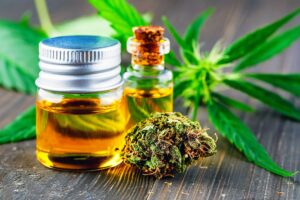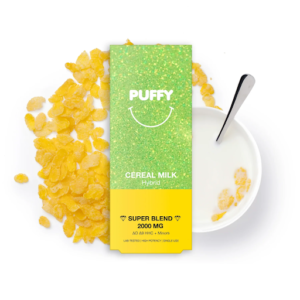
Cannabis contains a substance called Delta 8 THC, which is well-known for having psychoactive properties. Delta 8 THC is growing in favor among cannabis consumers as a result of its perceived milder psychoactive effects compared to Delta 9 THC, which is the primary psychoactive component in cannabis.
While they are both forms of THC, they have some differences in their chemical structure and effects. One should always rely on reputed vendors when it comes to purchasing Delta 8 or Delta 9. For instance, you can buy Delta 8 area 52, which is a popular option.
What makes Delta 8 THC and Delta 9 THC so different from one another? In this piece, we clarify the facts regarding these two cannabinoid substances.
Legality:
Delta 8 THC is more federally legal and available than Delta 9 THC because it is derived from hemp. Hemp is a type of cannabis that contains less than 0.3% Delta 9 THC on a dry weight basis, which is the threshold for federal legalization. Delta 8 THC can be extracted from hemp and converted from CBD through a chemical process. However, it’s essential to purchase Delta 8 THC products from reputable sources that provide third-party lab testing to ensure product quality and safety.
On the other hand, Delta 9 THC is the primary psychoactive compound found in marijuana, which is still classified as a Schedule I controlled substance under federal law. This means that Delta 9 THC is illegal at the federal level, and its possession, use, and distribution are subject to criminal penalties. While some states have legalized marijuana for medical or recreational use, the federal government still prohibits it. This makes it challenging to manufacture and distribute Delta 9 THC products on a national scale without risking federal prosecution.
Psychoactive effects:
Delta 8 THC
- Less psychoactive: Delta 8 THC is known to be less psychoactive than Delta 9 THC, meaning it produces a milder high or intoxication.
- Relaxing: Delta 8 THC is known to have relaxing effects, which may be helpful for people experiencing anxiety or stress.
- Pain relief: Delta 8 THC may have analgesic properties, which means it may help to relieve pain and inflammation.
- Appetite stimulation: Delta 8 THC may stimulate appetite, which could be helpful for people experiencing loss of appetite due to certain medical conditions.
- Less anxiety: Some people report that Delta 8 THC causes less anxiety or paranoia than Delta 9 THC.
Delta 9 THC
- Psychoactive: Delta 9 THC is the primary psychoactive compound found in cannabis plants and is responsible for the “high” or intoxication associated with cannabis use.
- Euphoria: Delta 9 THC is known to produce a feeling of euphoria, which is one of the reasons it is used recreationally.
- Relaxing or stimulating: Depending on the dose and individual, Delta 9 THC can have relaxing or stimulating effects.
- Pain relief: Delta 9 THC is known to have analgesic properties, which means it may help to relieve pain and inflammation.
- Anxiety or paranoia: Some people may experience anxiety or paranoia when using Delta 9 THC, particularly at higher doses.
Potency:
Delta 9 THC is typically more potent than Delta 8 THC, meaning that it can produce stronger effects with smaller doses. However, this also means that Delta 9 THC is more likely to cause unwanted side effects such as anxiety, paranoia, and impaired judgment.
Conclusion
Due to its legal status, Delta 8 THC has become more widely available in recent years, with many companies producing Delta 8 THC products such as tinctures, edibles, and vape cartridges. However, your individual needs and preferences will eventually determine whether you choose Delta 8 THC or Delta 9 THC. Both are two distinct cannabinoids with comparable effects, they differ significantly in terms of their strength, legality, source, and possible medical applications. When contemplating using either of these cannabinoids, it is crucial to comprehend these distinctions. By doing this, you can make sure that the Delta 8 THC or Delta 9 merchandise you are buying is both secure and efficient.







